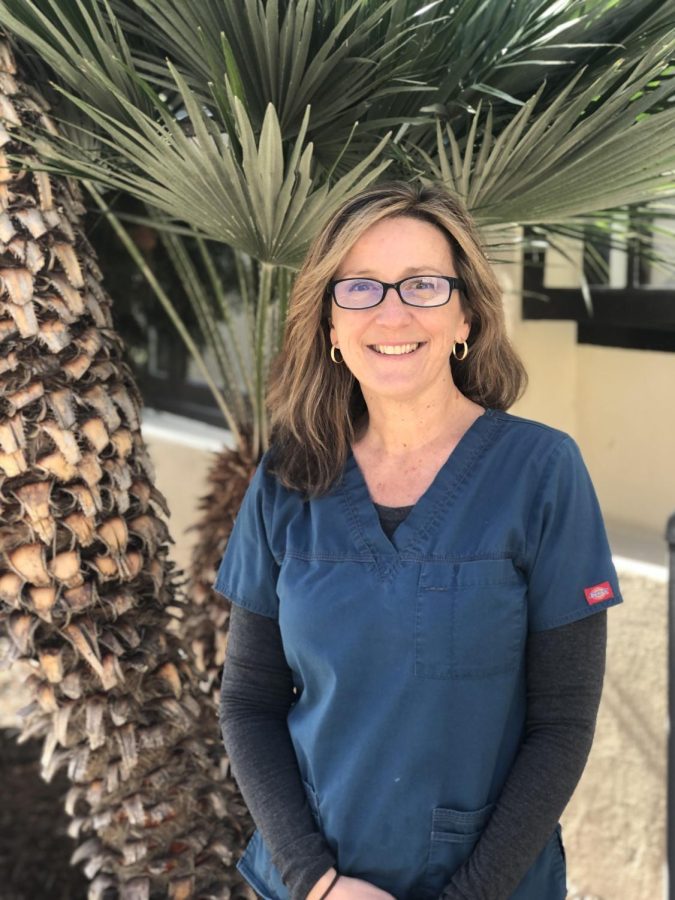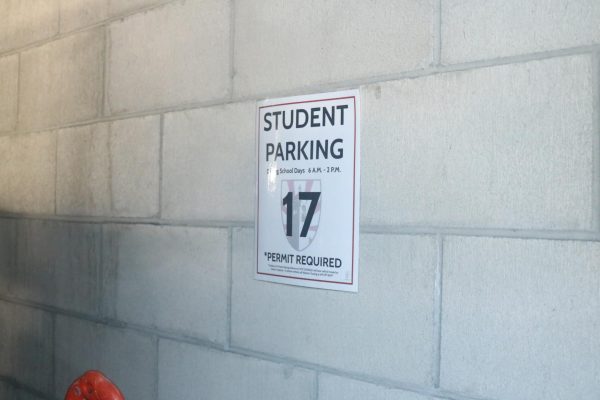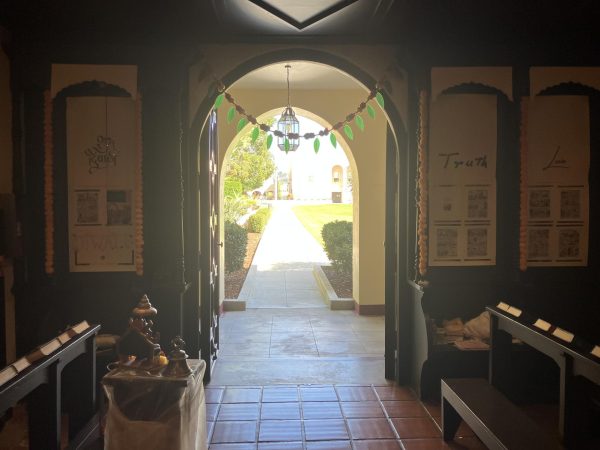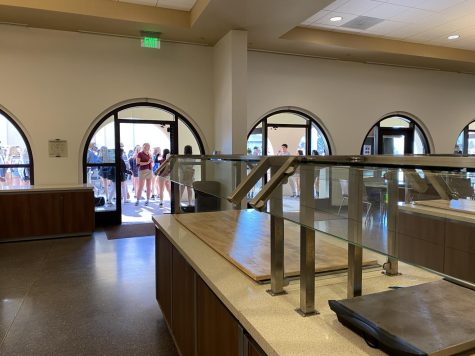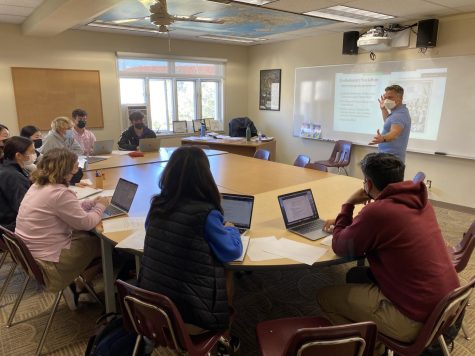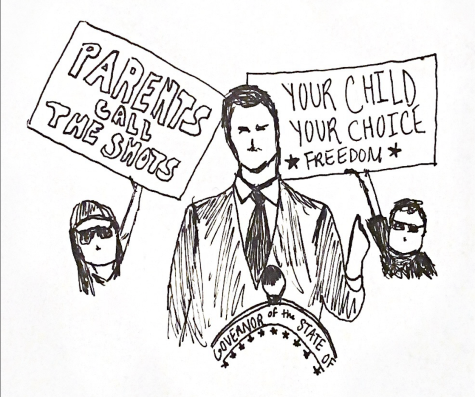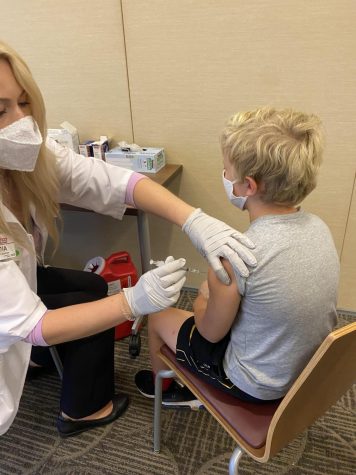Spring in Her Step: Q&A with School Nurse Susie Fournier
Susie Fournier, School Nurse at The Bishop’s School, treats various student injuries. Additionally, she tracks potential COVID-19 cases at the school.
Q: So first of all, can you introduce yourself and what your job means?
A: My name is Susie Fournier, and I’m the school nurse here. My job is to take care of minor and major injuries of students and also check in with them when they’re not feeling well or having a rough day.
Q: Got it. As kind of an icebreaker question, what’s your favorite part about the job, or what do you look forward to most in each day?
A: Oh, I love the students. I love to see students that I’ve taken care of over the years grow up and turn into amazing young men and women. I’m so proud of all of them and it’s been such a pleasure to get to know them through middle and high school.
Q: Awesome! What does your schedule each day look like, from the start to whenever you leave school?
A: My school day usually starts off with a bang. Typically, I’ll have students waiting for me to look at an injury from the evening before, or even that morning. Getting out of the car, they might be on crutches, or may need me to evaluate them for a concussion. So, it’s busy. I usually spend a lot of my day evaluating and testing students with minor cold symptoms that mimic COVID. I’ll typically need to test them and send them home until we can get the results back the following day. Sometimes, I’ll have meetings with our Student Services team about student health and wellness– we try to figure out different ways we can support kids who might be struggling.
Q: Speaking of COVID, I know it must have a really big impact on your job especially. How has the pandemic changed or impacted what it was like before COVID happened and now?
A: Its really changed my job. COVID symptoms can be anything from general cold symptoms to unexplained or unusual headaches, congestion to sore throats, or even just being really tired. It’s been tough because kids get a lot of cold symptoms or headaches. In the past, as long as they didn’t have a fever and felt okay, they could stay at school. But now, a lot of the kids that come in for stuff that might seem really minor need to be tested and go home. I don’t like to send kids home. I know they’re disappointed, but I need to follow the County Health Department guidelines and continue to be vigilant and stay safe. We’re lucky that we can do the PCR testing here, and can get kids back usually the next day now, which is really helpful.
Q: Has COVID made your job harder, or more stressful?
A: Yes. When we have a positive case, it can be really challenging to do contact tracing. Sometimes, we’re going back and asking the person who’s positive who they had lunch with the prior Monday or prior Friday. Most of us don’t remember details like that, so it can be tough for people to remember, especially when they’ve just gotten the news they’ve tested positive. Contacting all those people and figuring out who’s vaccinated and who’s not, who needs to be quarantined and who doesn’t, who needs to be tested and who doesn’t, can be really time consuming. It’s also stressful when I have to figure out if a headache is just because a student is under stress or didn’t get a lot of sleep the night before, or if it’s potentially the first sign of COVID. I usually have to err on the side of caution, which is not always the most popular decision.
Q: Asking around, the general consensus is that Bishop’s is doing a really great job at keeping COVID contained. Is there anything that you might think is attributed to that?
A: Sure. Everyone at the school had been really good about masking up indoors. Masking makes such a difference. Also, a lot of our students and staff are vaccinated, which is a big help. I would say, out of the people that are eligible to be vaccinated, our numbers are greater than 90%. The air filters that we have in our classrooms are really good at preventing the virus moving around if we have a case that we don’t know about, too. I think also, students, parents and staff have been really transparent and forthcoming. Students and staff are staying home when they’re sick. They’re calling and asking to get a test before they come back to school. It makes such a difference. You know, it’s definitely a group endeavor. It takes a village. It takes all of us. It takes all the teachers and the students and the parents and the administration. Everyone has to be on board following the CDC guidance, trying to cut down infections on our campus, and it’s working.
Q: I guess for now, wearing masks and staying socially distant is a new normal. Do you think if we keep this up, things will eventually become how it was before, or will masks stick around for a while?
A: I’m not sure. I think masks will stick around for a bit, at least for the rest of this school year. I think we’re going to have to live alongside COVID for a while. New medical treatments and more people getting vaccinated will help us get through this more quickly.
Q: That’s all of the questions I had, but is there anything you’d like to add, or something I didn’t ask that you wanted to just say?
A: I really want to add that Mr. Beamer is doing a great job leading the charge to prevent COVID transmission on campus. He’s been a great leader in all of this and a terrific partner to work with. The last year and a half has had some unique challenges, and he’s done a great job tackling those challenges. Our testing physician, Dr. Maggie Paredez has been a huge help making sure PCR testing on campus is possible. Students and families have been incredible. Everyone has been so supportive, even when I have to call home and ask them to pick up their child for a minor runny nose or headache. The parents have been really supportive, and the kids have been really honest. I appreciate it. It feels like everyone’s on-board to be a part of the solution, and that makes my job so much easier.
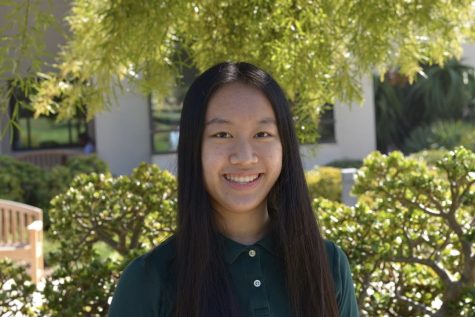
Shirley Xu is a junior and this is her first year on The Tower. She has been a writer since the ripe age of three, and is excited to share her journalism...


